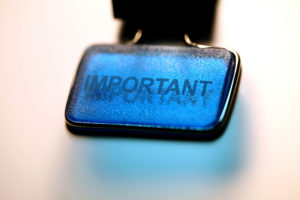Parents: Boys Are Sexting More Now Than Ever– What You Need to Know
 I was on the Today Show this morning talking about teens and sexting. A new study suggests that boys are sexting more than ever– aiming to get the attention of girls in profoundly inappropriate ways. Here are some questions parents have asked me– and some answers that I hope will be helpful to you as you navigate today’s high tech culture with your children.
I was on the Today Show this morning talking about teens and sexting. A new study suggests that boys are sexting more than ever– aiming to get the attention of girls in profoundly inappropriate ways. Here are some questions parents have asked me– and some answers that I hope will be helpful to you as you navigate today’s high tech culture with your children.
(1) Is this the new normal?
This kind of behavior has become a lot more common likely because there is so many messages out there that are telling young people this is the norm. Pornography is just a few key strokes away. Objectication and sexualization is part of the natural landscape of advertising and marketing to teens today. (3) Hook up culture is celebrated in many TV shows and reality shows for teens. And don’t forget (4) Real life politicians, sports heroes and entertainers are made into household names for doing it, make excuses for it and are excused for doing it. These messages happen 24/7 so their frame of reference is, this is the norm.
(2) What should parents do?
When I’m presenting to parents or educators I tell them that they must look & listen, Engage & explain and Be a powerful example.
- Look/Listen: What is my child doing? What is he watching? What kinds of texts is he sending? What is he saying about girls? To his friends? To girls?
- Engage & Explain: Ask directly. For example; Dr. Robyn was saying on The Today Show that boys are sending texts to girls about hooking up and having sex—is this happening in your world? What do you think about it? Be very clear that what he is seeing and hearing on the internet and on TV is not the norm.
- Provide a powerful example: There are too many messages out there that are telling your children that hook up culture is to be expected—so show them what it means to have a meaningful relationship based on respect, kindness and character.
(3) When should parents talk to their children about it?
Parents need to start talking to their children about the power of the media, their bodies and treating people with respect and kindness from a very early age. This is not one conversation but a series of conversations we have over a childhood so that when we move into sexting, dating, hook up culture and sex, it’s not strained or strange—it is a natural continuation of countless conversations you have had with your child. We can’t just have “the sex talk” we need to have the relationship talk, the character talk, the technology talk and many others to raise a healthy, respectful child. Conversation not only with boys—but absolutely with girls too who may have more power than they think to change the way boys talk to them and relate to them.
(4) Boys are acting with clueless aggression that is fueled by anonymity so I tell them that a good litmus test is– Would you be embarrassed if this text was seen by your mother or your sister? If yes, it’s probably not something you should send.
What do you think? Is this a concern of yours? How do you deal with it?




 We don’t mean to do it. But so many of us do it anyway.
We don’t mean to do it. But so many of us do it anyway. A new alliance I am part of called “
A new alliance I am part of called “